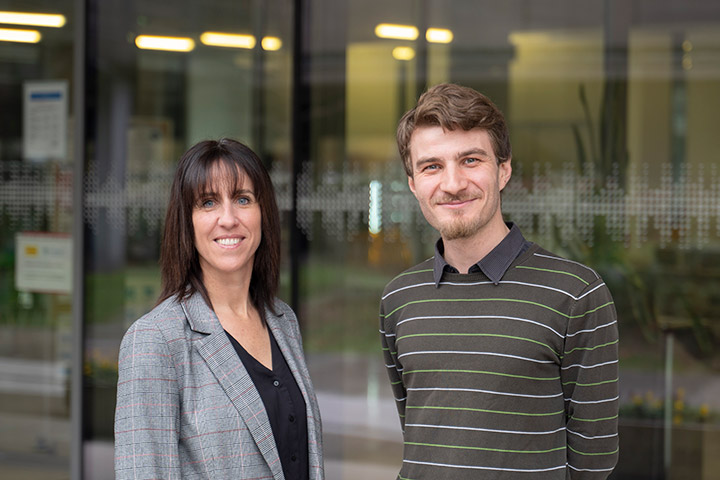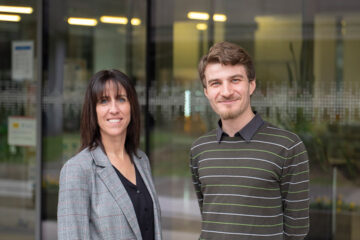
New executive committee for the Bordeaux Neurocampus Graduate Program
– Create a Bordeaux Neurocampus international training program in Neuroscience:
. Integrated Master/PhD program
. Support 4-5 additional PhD fellowships/year
– Enrich the training offer
– Strengthen learning by hands-on training
– Involve PhD students in teaching activities
– Promote partnerships with academia and the private sector
– Mobility grants
The Bordeaux Neurocampus Graduate Program was created in 2017. This 10-year project, conceived and directed by Christophe Mulle, supports the training and professional development of Master’s students in neuroscience and PhD students present in the Bordeaux Neurocampus research teams. Among the programme’s missions: an annual call for PhD applications which has just been launched for the fifth year, creation of courses and training, and – perhaps less well known – mobility grants.
At the start of the 2022 academic year, Agnès Nadjar succeeded Christophe Mulle as director of the programme. He is remaining at the head of the Bordeaux School of Neuroscience. “It was an honour to be offered the position of director and it is with great pleasure that I accepted it,” she says. The partnership officer is now David Perrais, who also took up his post in September, and Denis combes remains academic officer.
Agnès Nadjar, a researcher at the Neurocentre Magendie, was already familiar with the challenges of the Graduate Program and international trainings, as head of the Neurasmus programme from 2014 to 2022, and a member of the Graduate program executive committee since 2017. The EUR also benefits from the support of a steering committee made up of the heads of the Masters programmes, but also of representatives of the department’s research units, the NBA and the Medical/Science dual programme. It should be noted that Pascal Fossat is the coordonator of Neurasmus alongside Morgane Lebon-Jego.
The EUR is a real success,” she confirms, “thanks to the active participation of many members of our community: researchers, teacher-researchers, students, the Bordeaux School of neuroscience, etc. The collaboration with the department, the doctoral school and the college of doctoral schools are also really efficient.
Her plans? To go on what has been put in place by the steering committee since 2017 flourish, but also to strengthen certain actions such as administrative support for the writing of European projects by recruiting a ‘grant officer’. And then there is the longer-term challenge of ensuring the financial sustainability of this fine programme!

Armand Blondiaux, who joined the team in November as project manager, will help to meet this challenge.
Armand Blondiaux holds two masters degrees from the University of Montpellier, one in neurobiology and endocrinology, the other in biostatistics. He defended his thesis on the role of lecticans in the epileptic phenotype at the Leibniz Institute of Neurobiology in 2021, in Magdeburg, Germany.
He is already familiar with the environment of the University of Bordeaux, having worked in the ACT programme for a year: “I like the university environment. It is a rich environment, from many different points of view: international, scientific, cultural…”
This new position allows him to respond to the desire to have a role of accompaniment and support for students. “It’s a role I had already taken on during my thesis as a doctoral student representative,” he explains.
So here he is, ready to support and help our student community. His office is at the CGFB, room 203. He is waiting for you!
Contact
Last update 15/12/22
